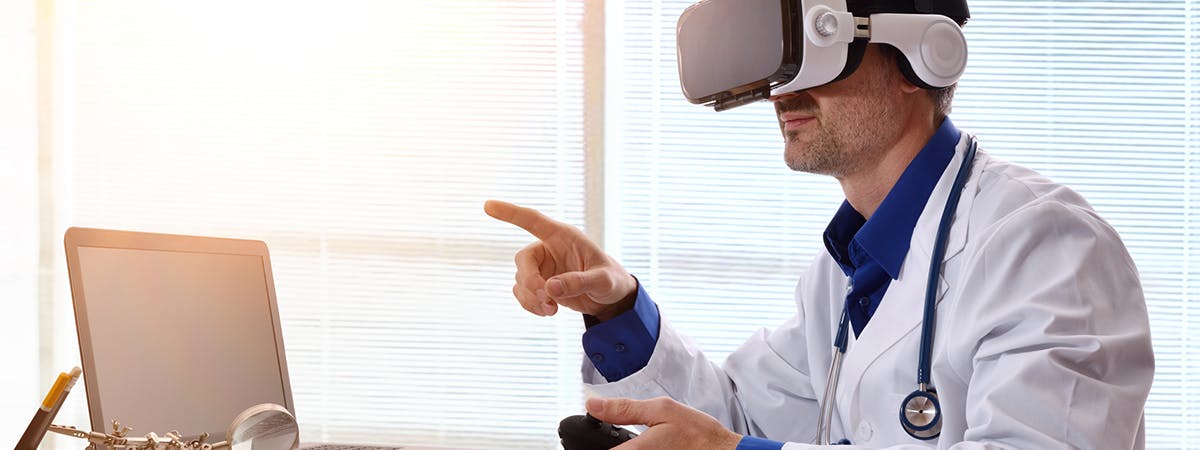How can we prepare students for difficult interactions with patients? This research project aims to measure the effect of using immersive VR to assist students in providing compassionate care to patients.

Researchers
- Vanessa Cui
- Nick White
- Tom Hughes-Roberts, Liverpool John Moores University
Background
Recent research in VR has demonstrated the technology’s potential in providing highly immersive learning experiences at a relatively low cost (e.g. Slater and Sanchez-Vives, 2016; Pan et al 2016). The use of VR in medical education is becoming more common, particularly in areas of skill-based training and learning abstract concepts (see Slater and Sanchez-Vives, 2016; Claudio and Maddalena, 2014). What is less explored is the use of VR simulations in developing social psychology aspects (i.e. thoughts, feelings and actions). This project examines the use of such VR simulations in the context of preparing Therapeutic Radiography students for their initial interactions with seriously ill patients in clinical settings.
Why does this matter? As stated in the Society of Radiographers’ Code of Conduct and Ethics, providing patients with compassionate care is one of the key professional attributes, yet it is a challenging area for pre-registration students’ learning and development. According to ‘Reducing Pre-registration Attrition and Improving Retention report’, a contributing factor to first-year health-care students discontinuing their course is a perceived under-preparedness in dealing with seriously ill patients (Health Education England 2018). This lack of preparedness also puts pressure on the student during their educational journey (ibid).
Aims of research
Developing students to become compassionate professionals requires extensive learner commitment, support from university lecturers and placement mentors and peers, as well as the suitable environment and tools to reflect on their clinical experiences with seriously ill patients. By bringing together cutting edge, bespoke VR simulations and dialogical, reflective learning experiences, this project will focus on creating effective learning environment and tools for developing first year Therapeutic Radiography students’ awareness and self-awareness in patient care settings.
Research methods
The principle of this project is a user-centred design approach. Students and teaching staff from Birmingham City University BSc (Hons) Radiotherapy programme will take part in this project as participatory researchers who will contribute to the outputs of this project as co-investigators and collaborators. Their involvement plays an important part of informing academic research and VR simulation application on health-care students’ and practitioners’ views and experiences of patient engagement.
The research aimed to tackle the following questions:
- Do VR simulations create an effective immersive experience that can be utilised for reflective learning?
- What are the behavioural reactions to the VR experience?
- To what extent are students aware of their thoughts, emotions and behaviours during the simulation?
- How does the student’s awareness impact on his/her experience within the simulation?
- How does the VR experience impact on student’s real world interactions with patients?
Future outcomes
The project aims to have direct impact on Radiotherapy programme’s curriculum and pedagogical practices. In addition it aims to:
- Develop curriculum activities and pedagogy approaches using VR simulation and accompanying reflective learning activities to support health-care students’ preparation for their workplace;
- Measure and evaluate the immediate impact of the simulation on individual participants using a variety of non-invasive biometric sensors;
- Evaluate any lasting impact of the simulation and its accompanying reflective learning experience on health-care students;
- Evaluate the usefulness of VR simulations in providing a rich experience that prepares health-care students for their workplace environment.
Funding
Funder: Birmingham City University
Funding: £5,000
Time Scale: June 2019 – June 2020